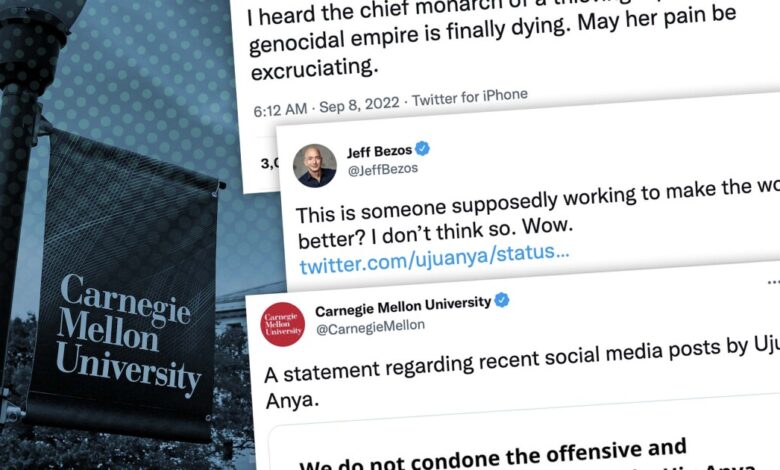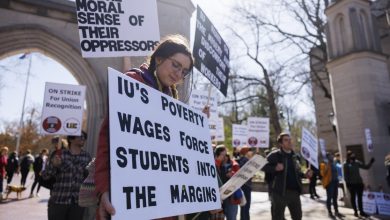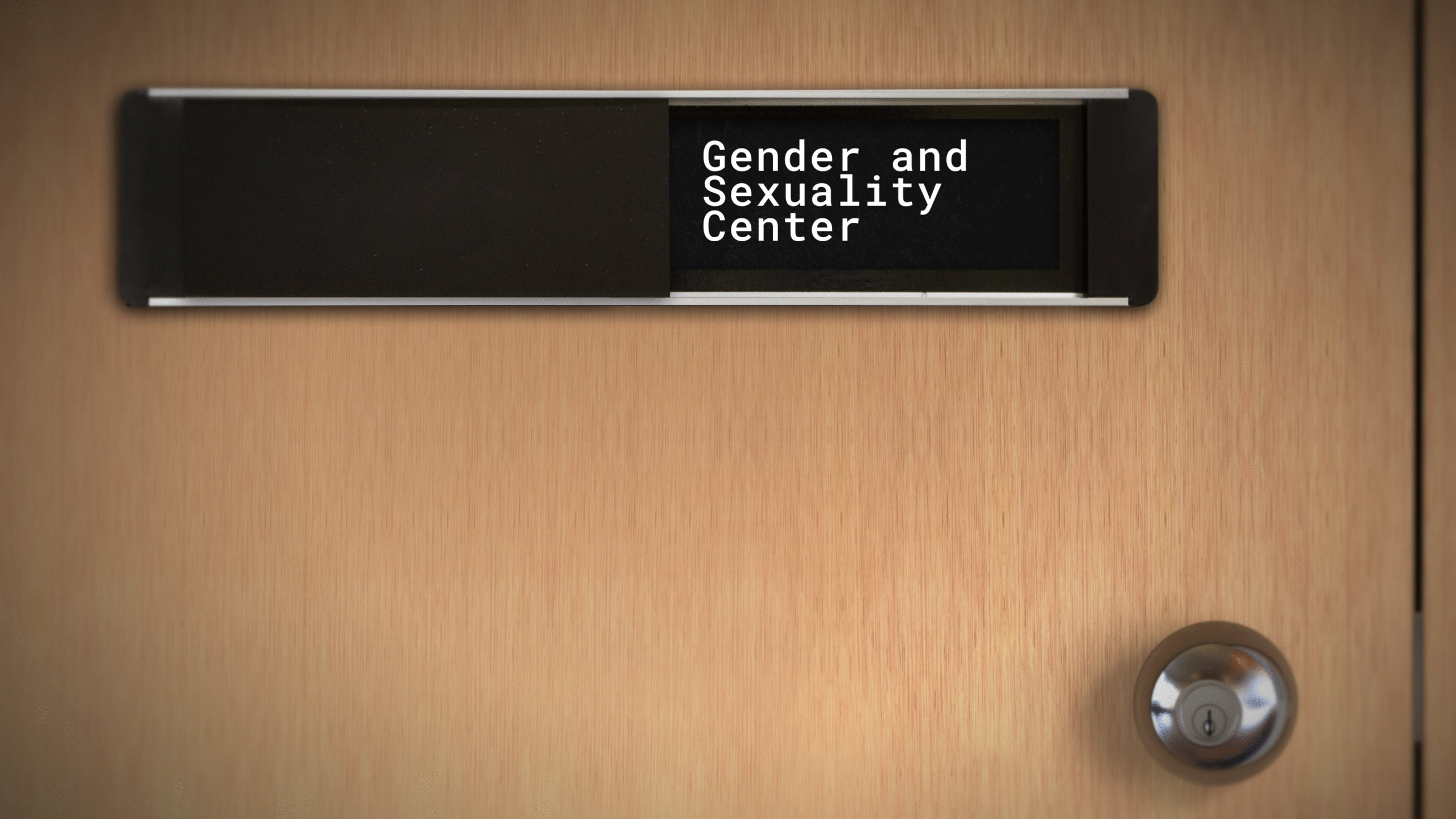Jeff Bezos Criticized a Professor’s Tweet About the Queen. Then the University Condemned Her Comments.

[ad_1]
After the British royal family announced on Thursday that Queen Elizabeth II was sick, Uju Anya, an associate professor at Carnegie Mellon University, tweeted, “I heard the chief monarch of a thieving raping genocidal empire is finally dying. May her pain be excruciating.”
Anya then went to teach a three-hour graduate seminar, not anticipating what would happen next.
Amazon’s CEO, Jeff Bezos, saw her tweet and responded with a judgment that unleashed a firestorm of criticism against the Nigerian-born academic.
Amazon has donated $2 million to Carnegie Mellon in recent years, and its chief financial officer, Brian Olsavsky, is an alum of the university. The Chronicle asked Carnegie Mellon if the university’s statement was influenced by Bezos’ tweet. A spokesperson said, “There is simply no truth to that assumption.”
After the tweet on Thursday by the world’s second-wealthiest human, Anya’s went viral for a short time before Twitter deleted it. The social-media network classified her comments as “inciting violence” and “targeted harassment,” and locked her out of her account.
Carnegie Mellon condemned Anya’s comments in a statement on Thursday while also defending”free expression”:
Her tweet, Bezos’ response, and the university’s statement generated hundreds of posts on freedom of speech, donor relations, and online harassment.
Anya said in an interview that Bezos had put a target on her, moving millions of his followers to threaten her. “I had to disable the ‘contact me’ button on my website because within half a day there were hundreds of hatred messages,” she said, describing the words as “the most violent you can think of.”
She said she suspects her tweet was singled out because of her identity.
“I caught his attention because of who I am. I’m Black, I’m a woman, queer, and left-leaning,” she said. “In addition to that, a couple of weeks back I attended a party where I met Chris Smalls, the Black man who unionized Amazon. I took a picture with him and I tweeted that picture, calling him brilliant and powerful.” She added that she wasn’t suggesting that Bezos has any idea who she is. “But I’m definitely sure the people who are paid to comb Chris Smalls’s name took note that a CMU professor was out socializing and promoting the man who’s making a lot of trouble, fighting worker exploitation.”
For Anya, the Queen’s death represents “the death of an oppressor. Half of the planet was happy and rejoicing. The Irish dancing, the Indians jubilating,” she said.
Anya said she is descended from Nigeria’s Igbo people, who suffered mass casualties as a result of Britain’s role in the Nigerian civil war. “My parents survived, but other family members were not as lucky,” she said.
“‘Colonizer,’ for me, is not an abstract concept or something I read in history books,” Anya said. “It’s my family’s history. A legacy of pain and direct trauma caused by the British ruler.” She added that she doesn’t separate Queen Elizabeth II “from the decisions of the government she supervised.”
Carnegie Mellon recruited her in a wave of hiring following George Floyd’s death in 2020, Anya said. She was hired, she said, because of her work in critical race theory, critical race studies, and decolonization.
Amid the controversy surrounding her tweet, she received support from many colleagues and students across the country, she said, including Carnegie Mellon’s Black Student Union. But Anya said she understands why the university released a statement distancing itself from her words.
“They are running a business. But I also hope they understand where I came from,” she said. “I’m grateful that my university reiterated my right to freedom of speech and expression.”
Timothy Verstynen, an associate professor of psychology at Carnegie Mellon, said that the university should create a social-media policy for the faculty and enforce it consistently.
“As a faculty member, what I found the most frustrating was the inconsistency in which the university decided to make statements about what their employees post on social media,” he said. Verstynen pointed out that earlier this year a Carnegie Mellon staff member posted comments about affirmative action that many found offensive, but it didn’t lead to a statement by the university.
“From my perspective, the university is more interested in image than application of principles. Why did they choose to speak up now?” he asked. “The one time they choose to make a statement about employee social media, it’s to a queer Black woman, not any of the other times that faculty and staff made offensive comments.”
[ad_2]
Source link






